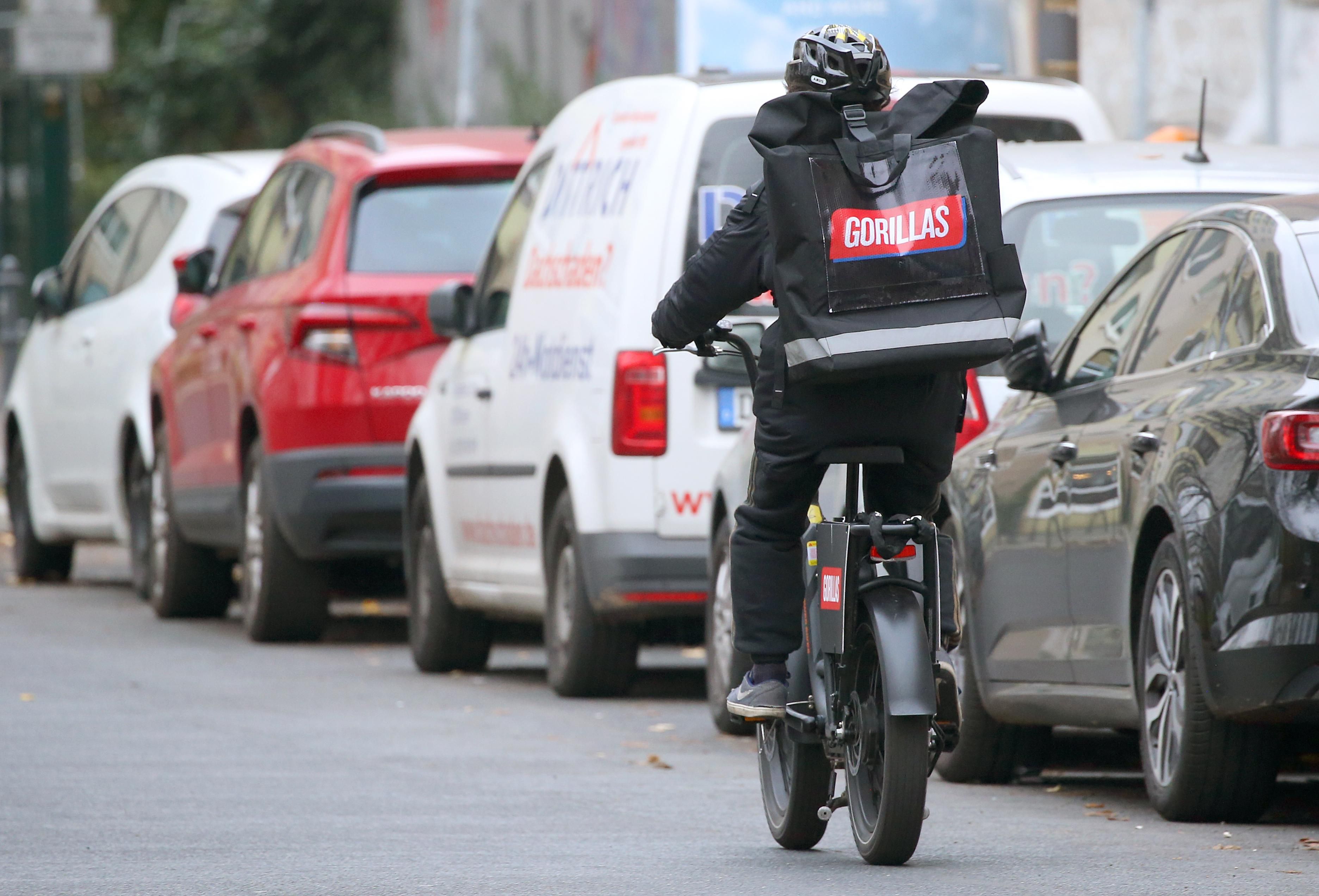What We're Watching: Gorillas in the gig economy & work struggles for the "sandwich generation"
Gorilla unicorn to gig goat: a cautionary tale. Last year, a new Berlin-based food delivery company called Gorillas was going bananas. With its minimal branding, pro-biker vibes, and good service, the company became the first German tech “unicorn,” meaning it raised enough capital to be valued at more than a $1 billion dollars. But then the wheels came off as its gig workers, angry about late payments and poor working conditions, tried to organize in protest, and hundreds were fired. The company continues to function, but it recently set up its holding company in the Netherlands. The tale of Gorillas is both an inspiring and cautionary one. Over the past 10 years, gig work, facilitated by new technology platforms — think Uber, Seamless, Fiver, etc — has grown rapidly. Close to 30 million Europeans secure work through digital platforms, and the EU says that could rise to 43 million by 2025. In the US, one in 10 American adults relied primarily on “on demand” work as of 2020. This has vastly expanded opportunities for employment and broadened companies’ ability to source talent and skills on demand. But that flexibility comes at a cost for employees, who lack the workplace protections and benefits normally associated with full- or part-time work. Policymakers are still trying to balance the pros of flexibility with the cons of “precarity.” The EU is leading the legislative charge on this, with a sweeping set of reforms that would force gig platforms to classify their workers as employees and give them more bargaining rights. Supporters say it will boost the gig economy to a fairer footing, while critics worry it will make them less efficient and more expensive.
Is the “sandwich generation” being frozen out? The pandemic has been difficult for people of all demographics, but the costs – and disruptions – have been particularly severe for the “sandwich generation.” Those include people in their 30s, 40s, and early 50s who are trying to balance careers along with caregiving responsibilities for young children and parents. This burden is disproportionately felt by women, who make up 60% of this demographic in the US, according to Pew. Anecdotal evidence in the US, UK, and parts of the European Union, suggests that the pandemic has forced these already-stretched individuals to give up jobs and shed work hours in order to take on the added burden of helping with home-schooling and elder-care responsibilities. There are signs that many of these women have not made their way back into the labor force. While men have mostly recouped their pandemic job losses in the US, women are lagging far behind: there were at least 1 million fewer women in the workforce in January 2022 than two years earlier, according to the Bureau of Labor Statistics. Some experts warn that things are still taxing for older members of the “sandwich generation” because young adults, whose education and work-life have been disrupted for the past two years, are becoming more dependent on their parents for housing and other support. Many businesses are ramping up “return-to-work” programs to help lure women back to work after long absences. But these programs are often limited in scope, and being out of work for extended periods can make it more difficult to secure desirable roles.
